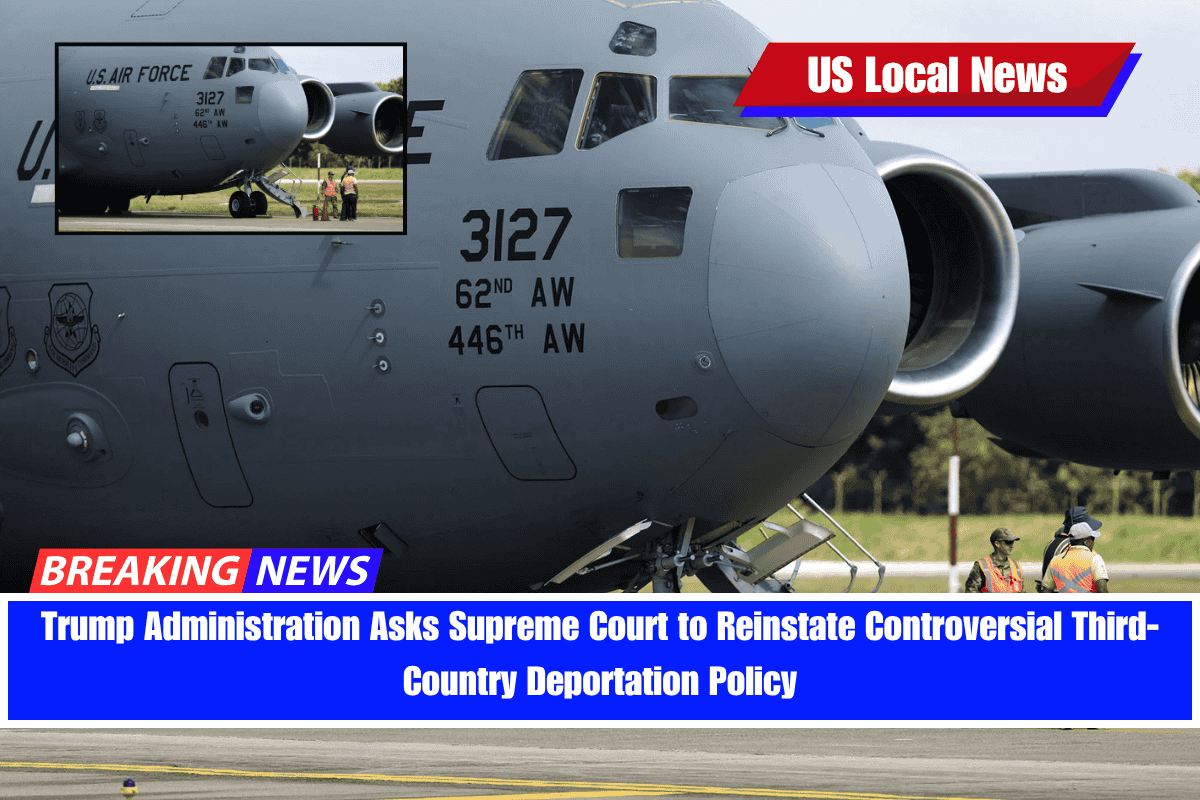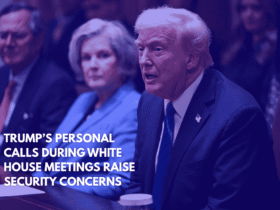Washington, D.C. – In a move that could have sweeping implications for U.S. immigration policy, President Donald Trump’s administration on Tuesday asked the Supreme Court to allow the resumption of deportations to third countries—nations that are neither the migrants’ home country nor a place where they hold legal status.
This policy, which was enacted soon after Trump returned to office in 2025, allows Department of Homeland Security (DHS) officials to deport undocumented migrants to nations such as South Sudan or Libya, even if those countries are engulfed in conflict, civil unrest, or widespread human rights abuses.
What the Trump Administration Is Asking For
The administration is appealing a federal court ruling that blocked this third-country deportation practice, arguing that the policy is essential to dealing with what it calls a “crisis of illegal immigration.”
According to the Department of Justice (DOJ), the U.S. is facing serious challenges in deporting individuals who are considered high-priority for removal—often those with criminal records or denied asylum—because their home countries refuse to accept them.
“Many aliens most deserving of removal are often the hardest to remove,” the DOJ wrote in its brief to the Supreme Court.
Court Orders and Violations
In March, U.S. District Judge Brian Murphy, a Biden-appointed judge, issued a ruling halting the administration from deporting individuals to third countries without prior written notice and a chance to contest removal based on fears of persecution or torture.
Judge Murphy later stated that the Trump administration violated this order when it attempted to deport detainees to South Sudan without proper warning or legal access. Many of the decisions and transfer plans took place after business hours, making it nearly impossible for detainees to reach lawyers or notify family, Murphy noted.
On May 21, Judge Murphy expanded his order to include mandatory 72-hour notice before any interview that could lead to third-country removal. Migrants would then be given 15 additional days to attempt to reopen their immigration cases if they fail the fear screening.
South Sudan, Libya, and Other Countries of Concern
The policy has drawn intense criticism due to reports that the administration planned to send migrants to dangerous or unstable countries, including Libya, South Sudan, and Saudi Arabia. In the case of Libya, the Libyan Ministry of Foreign Affairs denied any agreement with the U.S. regarding such deportations.
The 1st U.S. Circuit Court of Appeals refused to pause Judge Murphy’s order, citing concerns about the “irreparable harm” migrants could face, including wrongful removals and risk of torture or death in conflict zones.
The Administration’s Argument
The Trump administration claims it already has internal safeguards, including diplomatic assurances from receiving countries, to ensure deported individuals will not be tortured. Officials argue that Murphy’s court-imposed requirements go beyond what immigration law mandates and have created diplomatic challenges and national security concerns.
The government’s filing said it now faces the “intolerable choice” of either:
- Holding migrants longer at foreign military facilities, which it says risks damaging foreign relations, or
- Returning them to the U.S., where they may remain indefinitely if their home countries refuse repatriation.
Immigrant Advocates Respond
Immigrant rights groups have condemned the policy, saying it would expose vulnerable migrants to extreme danger and violate international human rights standards. Advocacy organizations filed an emergency motion after reports surfaced that the administration planned to deport migrants to Libya aboard a U.S. military plane.
The groups argue that sending migrants to third countries without proper hearings ignores their right to due process and to seek protection from persecution under U.S. and international law.
What Comes Next
The Supreme Court has not yet said whether it will hear the case or issue an emergency ruling. However, with a conservative majority on the bench, the Trump administration is likely banking on a favorable outcome that could reshape how deportations are handled in future cases involving nations unwilling to accept their nationals.
The stakes are high: if the Court allows the policy to proceed, it could dramatically expand executive authority over deportations and reduce legal protections for migrants in the U.S. immigration system.











Leave a Reply